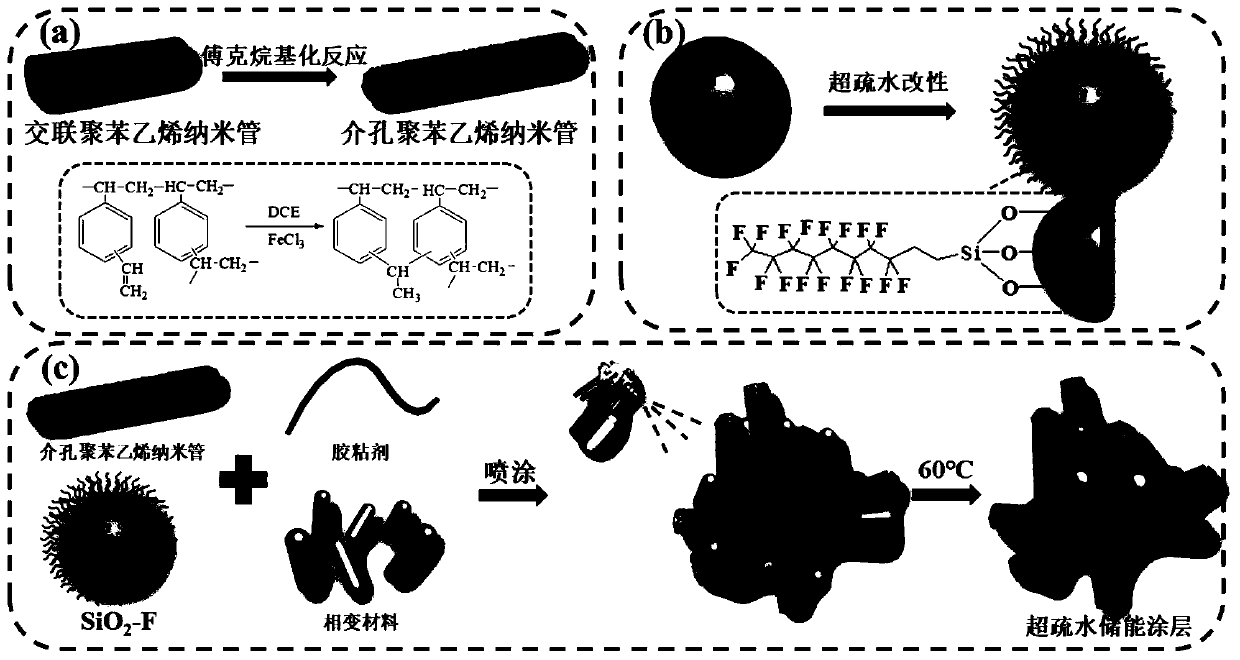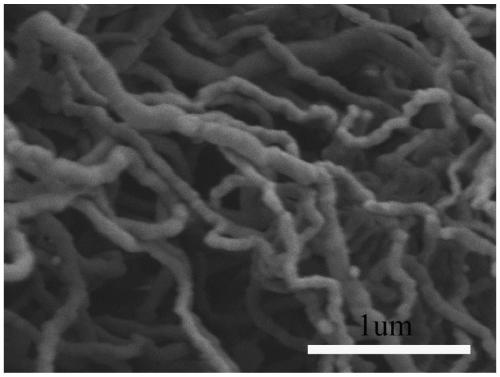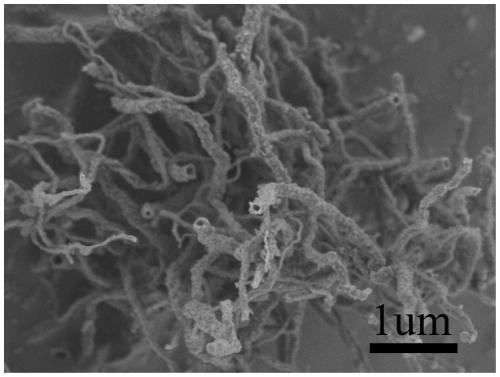Method for preparing sprayable super-hydrophobic coating with heat storage capacity
A technology of super-hydrophobic coating and heat storage capacity, which is applied in coatings, anti-corrosion coatings, and devices for coating liquids on the surface, and can solve problems such as lack of wear resistance
- Summary
- Abstract
- Description
- Claims
- Application Information
AI Technical Summary
Problems solved by technology
Method used
Image
Examples
Embodiment 1
[0055] (1) Preparation of polydivinylbenzene nanotubes
[0056] Referring to the above-mentioned cationic polymerization method, under the condition of 25°C, add 117g cyclohexane (99%) and 2.337g divinylbenzene successively into a 250mL three-necked flask equipped with electric stirring, and pass inert gas (nitrogen or argon) After stirring for 15 minutes, add 0.15 g of boron trifluoride diethyl ether (98%) dropwise to the there-necked flask (the dropping time is 10 seconds), and increase the stirring speed to 400 r / min at the same time, and react for 5 minutes. Transfer the resulting suspension to a beaker, and after the polymer settles, pour the supernatant into a waste liquid bucket, wash the obtained product repeatedly with absolute ethanol to remove the solvent and initiator, and obtain the product after suction filtration. The final collected product is dried in an oven to obtain the cross-linked polystyrene nanotube.
[0057] figure 2 It is a photo obtained by scanni...
Embodiment 2
[0076] (1) Preparation of poly(styrene-divinylbenzene) nanotubes
[0077] At 25°C, add 117g of cyclohexane (99%), 2.337g of divinylbenzene, and 0.5g of styrene to a 250mL three-necked flask equipped with electric stirring, and pass in an inert gas (nitrogen or argon) After stirring for 15 minutes, 0.15 g of boron trifluoride diethyl ether (98%) was added dropwise to the three-necked flask (the dropping time was 10 seconds), and the stirring speed was increased to 400 r / min at the same time, and the reaction was carried out for 5 minutes. Transfer the resulting suspension to a beaker, and after the polymer settles, pour the supernatant into a waste liquid bucket, wash the obtained product repeatedly with absolute ethanol to remove the solvent and initiator, and obtain the product after suction filtration. The finally collected product is dried in an oven to obtain poly(styrene-divinylbenzene) nanotubes.
[0078] (2) The preparation of mesoporous poly(styrene-divinylbenzene) na...
Embodiment 3
[0082] (1) The preparation of polydivinylbenzene nanotube is with embodiment 1 step (1);
[0083] (2) The preparation of mesoporous polydivinylbenzene nanotubes is the same as that of Example 1 step (2);
[0084] (3) Preparation of superhydrophobic silica nanospheres
[0085] Disperse 20g of silica nanospheres (10-20nm) in a beaker filled with 2370g of absolute ethanol, place the beaker bottle in an ultrasonic cleaner, perform ultrasonic treatment at 100W for 1h, and transfer the reaction system to a machine equipped with In a stirred 5L reactor, stir until the silica nanospheres are evenly dispersed, then add 1.08g of distilled water, 0.34g of ammonia water (28%) and 11.35g of perfluorooctyltrimethoxysilane (98%) into the reactor , react at room temperature for 12 hours, centrifuge to obtain superhydrophobic silica nanospheres, wash the product three times with ethanol, and vacuum dry to obtain superhydrophobic silica nanospheres powder.
[0086] (4) The preparation of the ...
PUM
| Property | Measurement | Unit |
|---|---|---|
| Diameter | aaaaa | aaaaa |
Abstract
Description
Claims
Application Information
 Login to View More
Login to View More - R&D
- Intellectual Property
- Life Sciences
- Materials
- Tech Scout
- Unparalleled Data Quality
- Higher Quality Content
- 60% Fewer Hallucinations
Browse by: Latest US Patents, China's latest patents, Technical Efficacy Thesaurus, Application Domain, Technology Topic, Popular Technical Reports.
© 2025 PatSnap. All rights reserved.Legal|Privacy policy|Modern Slavery Act Transparency Statement|Sitemap|About US| Contact US: help@patsnap.com



